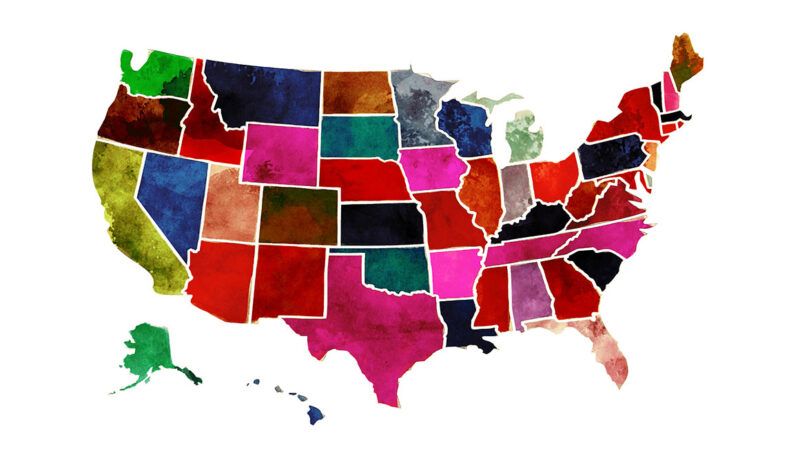Republican Governors and Attorneys General Think Every State Is a Border State
Some states that do not border Mexico have sought to play a role in immigration policy.

Republican officials in several states have taken immigration enforcement into their own hands since President Joe Biden took office, arguing that the federal government is not adequately addressing migrant arrivals at the U.S.-Mexico border. These efforts often duplicate federal enforcement measures and rack up bills for taxpayers with little or no public safety payoff.
Florida Gov. Ron DeSantis recently signed legislation requiring every Florida law enforcement agency that operates a county jail to enter into an agreement with Immigration and Customs Enforcement (ICE) under Section 287(g) of the Immigration and Nationality Act. These agreements deputize state or local cops to enforce certain aspects of federal immigration law. The new Florida law seems largely redundant, since Border Patrol agents already have jurisdiction throughout the state and 46 of its 67 counties already have 287(g) agreements.
As migration economist Michael Coon notes, Florida's law will "put a burden on the communities that, for whatever reason, decided not to participate" prior to its passage. Doing ICE's job is not cheap for local jurisdictions. The sheriff's office in Arizona's Maricopa County ran a $1.3 million budget deficit in 2008 largely thanks to 287(g)-related officer overtime. Maricopa County has paid an additional $43 million in legal expenses due to racial profiling and discrimination lawsuits stemming from its 287(g) program.
Some Republican governors whose states are distant from the southern border have chosen to expand their mandates by deploying state resources there. Last June, South Dakota Gov. Kristi Noem sent several dozen National Guard troops to Texas. Iowa and Arkansas did the same, while Ohio, Nebraska, and Florida sent state police and other state law enforcement officers. Although not all of those deployments were funded by state taxpayers (South Dakota used a private donation, for instance), diverting state employees to the border reduces the number working for the residents they are supposed to serve.
Some states that do not border Mexico have sought to play a role in immigration policy through lawsuits. When the Biden administration tried to rescind a public health order that had authorized 1.8 million migrant expulsions in the name of fighting COVID-19, the attorneys general of Missouri and Louisiana joined Arizona in suing to keep the order in place. A federal judge in Louisiana then blocked the Biden administration from lifting the order.
You don't need to look at a map to know that not every U.S. state is actually a border state. Governors and attorneys general who pretend otherwise are spending precious public resources with little benefit to their constituents.
This article originally appeared in print under the headline "Every State a Border State."


Show Comments (96)